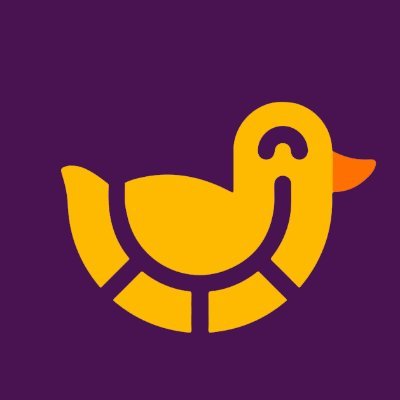23 Shocking Gambling in Japan Statistics You Must Know in 2024
Japan’s gambling industry is ironic. Its criminal code states that a person caught gambling must be fined, yet opportunities to gamble in Japan remain prevalent and in the open.
Gambling remains a multi-trillion Japanese Yen industry, even though legal gambling in Japan comprises only a few forms of gambling; Pachinko, sports race betting, and lotto. Japan has no casinos but is filled with 8,460 Pachinko parlors and thousands of lottery stands.
Discover more surprising statistics and facts about Japan’s gambling industry below. For Japanese translation visit this page.
Highlights of the Article
- The average revenue per user in Japan’s online gambling market is $628 in 2023.
- By 2027, Japan’s online gambling industry will have 11.04 million users.
- In 2021, there were 7.2 million Pachinko players in Japan.
- A Pachinko machine can generate ¥10,600 ($77.39) in daily winnings.
- An average Pachinko parlor has around 300 to 500 machines.
- 196.8 million participants bet on horse races in 2022.
- The Recovery Support Network in Japan received 785 calls from people asking how they could stop themself from gambling.
- Change in circumstances led 44.6% of Pachinko players to stop playing.
How Much Do Japanese Lose When Gambling?

Japanese gamblers spend $200 billion on Pachinko alone per year. That is 30 times Las Vegas’s annual gambling r§evenue, surprising since their gambling industry is more lavish than in Japan.
Regulations in Japan also forbid cash prizes. Their loophole is exchanging certain prizes from the initial venue to a tuck shop, where they exchange a special prize for cash.
That puts the average gambling loss of a Japanese adult at $447. This also makes Japan the 6th country with the largest gambling loss per adult globally.
Read the stats and information below to learn more about Japan’s gambling scene.
Online Gambling Statistics in Japan
Japan’s criminal code lacks a bit of definition regarding gambling. The general rule is that any government-approved gambling activities are legal. Except for Pachinko, any private entity cannot run a gambling operation.
When it comes to online gambling laws, they do not focus on individuals. They are more directed to corporations. That is why no local corporations operate online casinos or betting sites in Japan. Still, citizens can gamble online through offshore websites, like:
- Casumo
- Play Amo
- JackpotCity
- 888 Casino
Find out more about Japan’s online gambling industry through the stats below:
1. Japan’s online gambling market revenue will grow at a 6.71% rate from 2023 to 2027.
(Statista)
At this rate, the country’s online gambling market will be worth $7.53 billion in 2027.
That amount can increase further if Japan updates its laws and regulations on online gambling. That opens more opportunities for other online gambling activities, resulting in more users and revenue.
2. By the end of 2023, Japan’s online sports betting market will have a market volume of $3.78 billion.
(Statista)
It is legal for Japanese gamblers to physically bet on sports events through kiosks. Sometimes, local government organizations also set up booths to promote certain sports events, which help them raise funds for their group or advocacy.
Betting on sports events online is locally prohibited. Regardless, Japanese gamblers can still wager on sports games over the internet.
The loophole is betting through offshore websites. Some of the most popular ones are:
- 22bet
- bet365
- LiliBet
- Conquestador
3. The online gambling market of Japan has an average revenue per user (ARPU) of $628 in 2023.
(Statista)
Japanese gamblers spend around ¥86,000 ($628) on online gambling, which is lower than the amount gamblers spend on physical gambling.
Since there is no casino yet in the country, most Japanese gamblers participate in online casino games such as:
Others also spend on online sports and race betting.
4. The user penetration in Japan’s online gambling market will be 7% in 2023.
(Statista)
User penetration rate refers to the total number of users over the number of people targeted by a service or product. It is a ratio used to measure an industry’s success in bringing in more consumers and earning more revenue.
A 7% user penetration rate might seem low. However, it is above average, which means the industry is succeeding.
5. There will be 11.04 million online gamblers in Japan by 2027.
(Statista)
More Japanese gamblers will enter the online gambling scene. People are gaining interest in gambling online since it is easier and more convenient.
Japan is also known as a powerhouse of technology, ranking 13th in the 2022 Global Innovation Index for its technological advancements. With that, betting online becomes more exciting and entertaining.
Offline Gambling Statistics in Japan
The laws in Japan might state that gambling is illegal. Still, the government has been making exceptions by allowing some gambling activities, most of which are offline, such as:
- Lottery
- Pachinko
- Sports and race betting
Learn more about them below:
6. There were 7.2 million Pachinko players in 2021.
(Statista)
Pachinko is a popular pastime activity and a staple in Japan’s culture. These brightly-colored machines attract thousands of players a day. They work like a regular slot machine and are as fun as an arcade game.
After work, most Japanese workers relax by playing Pachinko. It is prevalent among older people. Pachinko parlors also let people socialize inside and play together, which makes the activity more fun.
7. According to a 2021 survey, 40% of Pachinko players spent an average of ¥10,000 to ¥30,000 ($73 to $219) per daily parlor visit.
(Statista)
Pachinko balls are one of the main currencies in the game. They cost around ¥4 each ($0.029). However, players need at least 125 balls to start, so they pay up to ¥1,000 ($7.30) per bucket of Pachinko balls.
The average Pachinko player buys 10 to 30 buckets of Pachinko balls per daily visit to the parlor.
8. Pachinko machines had an average daily win of ¥10,600 ($77.39).
(Statista)
Since gambling for money is prohibited in Pachinko, there are two types of currency in this gambling activity:
- Pachinko balls
- “Special-prize” tokens
Players use Pachinko balls to start the game. The gambler can earn more balls as they go on. Once done playing, the gambler will trade Pachinko balls in the parlor with “special-prize” tokens.
Then, they bring the tokens to another shop separate from the parlor, where the token is exchanged for money. This specific legal loophole lets the world of Pachinko thrive in Japan.
Sometimes, players can also win small prizes from Pachinko, like:
- Toys
- Beer
- Candies
- Exotic wine
9. Each Pachinko parlor has 301 to 500 machines installed.
(Statista)
A Pachinko parlor with 301 to 500 machines is the typical parlor size in Japan. There are still small-sized Pachinko parlors, but they are uncommon. Parlors had to be large to cater to the thousands of people who play in the venue daily.
10. There were 22.3 million people in Japan who participated in lottery games.
(Statista, LottoSmile)
The lottery is called Takarakuji in Japan and is one of the world’s best lotto games. It has several variations:
- Mini Loto
- Japan Loto 6
- Japan Loto 7
- Scratch cards
The prizes are incredible, and the odds of winning are great. The Mini Loto alone has winning odds at 1 in 169,911, where the bettor can win from the starting jackpot of ¥600 million (approx. $5 million). Foreigners can also participate in the Japanese lottery, increasing the number of participants in this gambling activity.
Most of all, when someone wins the lottery in Japan, their winnings are tax-free. The government automatically takes a portion of every wager. That makes the lottery more attractive to bettors.
11. Lotto sales revenue in Japan amounted to ¥813 billion (approx. $6 million) in 2021.
(Statista)
This recent data shows that the lotto sales revenue in Japan has been decreasing. In 2011, the amount was ¥1 trillion ($7 billion). It hit its lowest sales in 2017 with only ¥787 billion ($5. billion).
The lottery is most popular among older people, and Japan is one of the oldest nations in the world. They have a large proportion of people over 65, making the rate of deaths outpace births.
With that, the population is expected to shrink shortly. When that happens, the lottery industry loses its key players tremendously.
As for the younger generations, they are not interested in playing the lottery. They prefer to skip chances of winning the jackpot and pursue rational paths to wealth instead.
12. Approximately ¥376 billion ($2.7 billion) was paid out as prize money from the total lottery revenue in 2021.
(Statista)
The lottery has been embedded in Japanese culture since the 1600s. However, it got banned around the 1840s. The government needed funds in 1937 for the war, so they reintroduced the activity to the people.
Since then, lottery revenue has helped the country. Not only through one person who wins the draw but also through projects that need funding.
The other half of the total lottery revenue, amounting to at least ¥305 billion ($2.2 billion) in 2021, was used to fund public projects.
Japanese Sports Betting Statistics
The government in Japan allows sports betting in limited circumstances only. Bettors are only allowed to wager in “public sports,” like:
- Horse racing
- Powerboat racing
- Motorcycle racing
- Bicycle racing (Keirin)
If gamblers in Japan wish to bet on other sports like soccer, their best chances to do it legally would be online.
More information about Japan’s sports betting scene follows:
13. There were 196.8 million betting participants at horse races in 2022.
(Statista, Horse Racing in Japan)
Horse racing is Japan’s most popular sport to bet on. People flock to the tracks to watch and bet on horse racing. In Japan, the fields are large and can house thousands of spectators.
During one racing day, 12 races are administered by the Japan Racing Association (JRA). That puts it to around 4,000 horse races in a year. All of that leads to larger crowds and revenue.
14. The total sales from registered horse race betting in Japan were ¥3.1 trillion ($22 trillion) in 2021.
(Statista)
This makes horse race betting the sport with the highest amount wagered in Japan, with only a ¥100 to ¥200 starting bet. It is a highly-spectated sport where gamblers get to socialize while watching. Ultimately, the thousands of spectators get converted into millions of revenue.
15. There were 426.3 million participants in Japan’s boat racing industry in 2021.
(Statista)
Boat racing is not a popular sport in itself. Japanese gamblers are only into it because it is one of the few games they can legally bet on and physically watch.
Since 2021, Japan’s boat racing industry has been experiencing an increase in participants. The Japan Racing Association stated this is due to Pachinko players starting to get into boat race betting, hoping to increase their winnings by participating in more gambling activities.
16. The net sales generated by Japan’s boat racing industry were ¥2.44 trillion ($17 billion) in 2022.
(Statista)
The annual net sales of boat race betting have doubled in Japan since 2015, when the net sales were only ¥1.03 trillion ($7.5 billion). This spike in revenue can account for the increase in participants.
17. Bicycle racing in Japan received a total betting turnover of ¥1.09 trillion in 2022.
(Statista)
This sport is known as “Keirin” in Japan, meaning “racing cycle.” Bettors only need as little as ¥100 per race, where they must predict the first three riders that will reach the finish line.
As the sport sees millions of spectators and bettors a year, that simple hundred yen gets converted to trillions of revenue.
18. In 2022, the total number of attendees for professional bicycle racing in Japan was 1.7 million.
(Statista)
Japan’s bicycle racing attendance has decreased since the 1990s and has had trouble recovering. In 2013, there were 4.23 million attendees. A decade later, attendees dropped to 1.7 million.
Most of the younger generation in Japan sees Keirin as a gambling activity instead of a sport. This age group in the country has a strong disinterest in gambling, contributing to the drop of spectators and bettors in Japan’s bicycle racing industry.
Despite this, Japan considers the situation stabilized as long as it receives significant revenue.
Gambling Addiction Statistics in Japan
One of the common pastimes and after-work activities is gambling. Since it is pervasive, gambling addiction rates in Japan are also high.
Based on a 2021 survey, gambling disorders affected 3.7% of male and 0.7% of female participants in Japan. The rate of affected male gamblers alone is comparatively higher than in other countries.
Japan’s gambling laws are strict, but the care for problem gamblers does not receive the same attention. Most individuals with gambling addiction receive criticism due to the majority’s narrow perspective.
See the statistics and information below to find out how the country deals with this issue:
19. The Recovery Support Network in Japan received 3,403 calls related to gambling addiction in 2021.
(Statista, Statista)
Japan’s Recovery Support Network is a non-profit organization offering teleconsultations to problem gamblers. The organization receives thousands of calls because it is the least humiliating way for problem gamblers to seek help.
Most of those calls were related to Pachinko’s gambling addiction. People in their twenties also made up most of the callers, followed by people in their thirties.
When problem gamblers call, they receive a short consultation and counseling. Some are directed to other social resources for problem gamblers, like Gamblers Anonymous groups, to further assist them with their struggle.
20. 785 people in 2021 asked for advice on stopping themselves or others from gambling.
(Statista)
The organization revealed that this is the most common inquiry during the calls. The second most asked was how to gamble responsibly.
People are more comfortable asking those questions over the phone than discussing them with friends and family. In Japan, problem gambling remains less discussed in social settings since gambling is widely accepted.
21. A 2021 survey revealed that 94.7% of those who gambled their whole life had not sought help.
(National Hospital Organization Kurihama Medical and Addiction Center)
The country’s gambling policy does not have a section meant to ease these issues. Instead, it relies on the problem gambler’s responsibility. However, gamblers and their families choose not to seek help due to shame and feelings of guilt.
Few still sought help from:
| Family and friends | 4.6% |
| Public health centers | 0.1% |
| Clinics and hospitals | 0.1% |
This problem of gambling is not discussed enough in the country. If criticisms and narrow perspectives continue, problem gamblers will still refuse to seek help.
Growth and Trends of Japanese Gambling
Casinos have always been illegal in Japan. However, the Japanese government recently approved the establishment of the country’s first casino.
Osaka won the right to host this casino with an integrated resort on the city’s Yumeshima Island, which will open in 2029. Experts project it will attract around 20 million visitors per year. Its total revenue is expected to be ¥1 trillion yearly. This will help the city and the country’s economic growth.
While the world waits on that, see other trends in Japan’s gambling industry below:
22. There were 9.7 million attendees in Japan’s racing venues in 2021.
(Statista)
There is a decline in attendance at racing events in the country. This decrease started during the pandemic, and the industry has not recovered.
The digitalization of the sports race industry is one of the prime reasons for the drop. Recent technological advancements allow gamblers to bet flexibly and more conveniently.
Plus, features online make the activity more exciting, inviting more online users. With that, the industry might decline in spectatorship, but the revenue from the activity remains significant.
23. 44.6% of people stopped playing Pachinko due to decreased free time or money.
(Statista, Japan Today)
This has been an ongoing trend in Japan’s Pachinko industry, even before COVID-19. More and more Pachinko players are stopping for several reasons:
The data below is used from Statista.
| Reason | Percentage |
| Changed circumstances (decrease time and money) | 44.6% |
| Disappearance of machines in which wins and losses were decided in a short period | 8.5% |
| High-risk and high-reward pachinko models are phased out | 8.4% |
| The pachinko parlour a gambler visits often has closed | 7.5% |
| Machine playability has decreased | 7.4% |
| All machines are similar | 5.5% |
Apart from a change in circumstances, the closing of Pachinko parlors is also one of the main reasons people stop playing it. The number of Pachinko parlors decreased to 12% from 2020 to 2022.
The pandemic restrictions were a catalyst for these closures. However, experts say this decline has long been coming since younger generations are not interested in gambling anymore.
Wrap-Up
Gambling has been part of Japanese culture since the 7th century. Today, it is both thriving and developing. The legal gambling choices are limited, and interest in them has declined.
Regardless, the industry is stabilized. Japan has something to look forward to since its first land-based casino resort will open in 2029. Locals are also urging the government to update their online gambling laws.
Any forward changes will be good for the industry’s growth and the country’s economy. With that, Japan will finally unlock its gambling industry’s full potential.
FAQs
Does Japan tax gambling winnings?
Gambling winnings in Japan are tax-free since the government already takes it from the wagers.
Did Japan legalize gambling?
Only limited gambling activities are legal in Japan. Casinos are illegal, but Japan is building its first land-based casino, which will open in 2029.
What are Japan’s most known legal gambling activities?
There are 2 with varying subtypes: Pachinko (Mini Loto, Japan Loto 6 and 7, and scratch cards under lottery (horse racing, powerboat racing, motorcycle racing, and bicycle racing).
 BC.Game
BC.Game  BitStarz
BitStarz  Ducky Luck
Ducky Luck  Red Dog Casino
Red Dog Casino